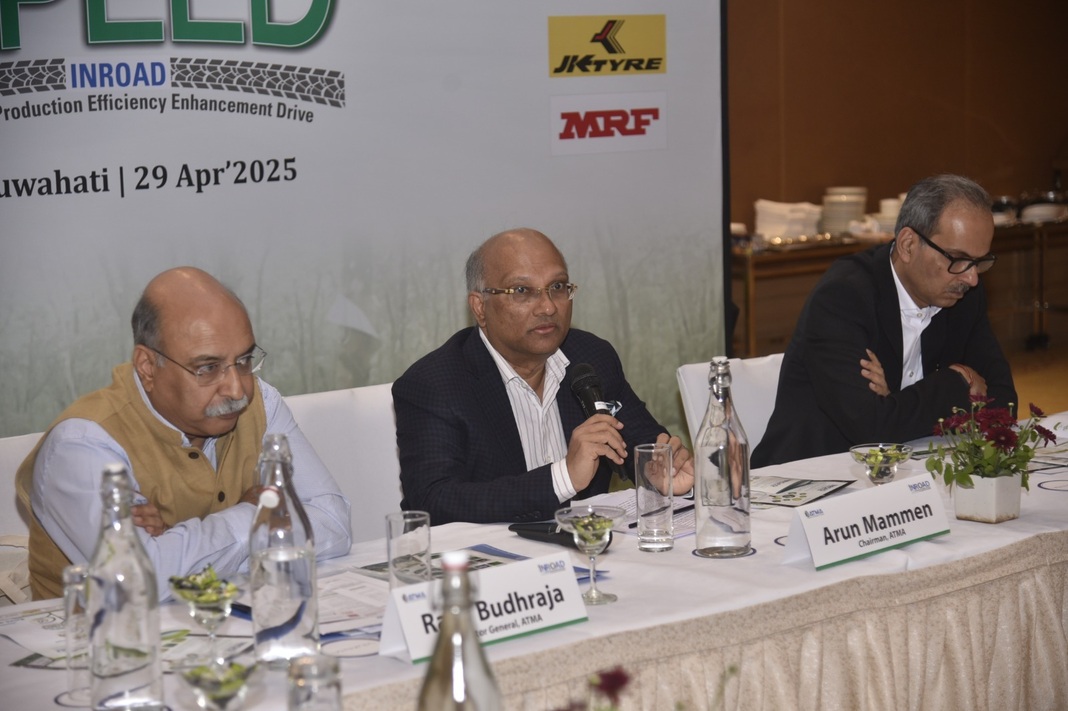
Backed by India’s top tyre makers, the five-year plan aims to boost productivity, build rural infrastructure, and improve rubber quality at source
Guwahati, May 1: A game-changing ₹145 crore initiative named iSPEED (INROAD Skilling and Production Efficiency Enhancement Drive) was launched in Guwahati on Tuesday under Project INROAD, targeting over 2 lakh smallholder rubber growers in the Northeastern states and West Bengal.
Launched by Arun Mammen, Chairman of the Automotive Tyre Manufacturers’ Association (ATMA) and vice chairman & managing director of MRF Ltd., alongside Pravin Tripathi, chairman of INROAD, the initiative was unveiled during a press meet and marks a major push toward modernizing India’s rubber sector.
Project INROAD (Indian Natural Rubber Operations for Assisted Development) is a unique industry-led model where four major tyre manufacturers—Apollo, CEAT, JK, and MRF—are financially supporting rubber cultivation efforts, with implementation handled by the Rubber Board of India.
“With iSPEED, we are investing in the knowledge and capabilities of India’s rubber growers,” said Mammen. “This is about empowering smallholders with scientific techniques, sustainable practices, and shared infrastructure. It’s a step toward rubber self-reliance.”
iSPEED is a five-year commitment designed to close critical gaps in productivity and quality. It will focus on skill training for over 2 lakh farmers and nursery owners, installation of 3,000 smokehouses for high-quality sheet production, deployment of 3,000 sheet rolling machines (manual and motorized), establishment of model nurseries, demonstration units, and grading centres and development of a lead farmer network for peer learning and knowledge sharing.

Pravin Tripathi noted, “With INROAD laying the foundation, iSPEED brings the momentum. We’re creating infrastructure and skilling frameworks that will outlive the project and deliver long-term value to rural communities.”
Rubber cultivation has seen major growth under INROAD, with over 1.36 lakh new growers joining in the past four years. Yet challenges remain: lack of scientific tapping, poor processing infrastructure, and inadequate disease management continue to limit yields.
Most beneficiaries of iSPEED are smallholders with less than an acre of land. To make infrastructure accessible, INROAD is promoting community-led models and group-based approaches.
The initiative is expected to deliver increased productivity in plantations, higher quality RSS-4 grade rubber at the farm level, better pricing and improved incomes for growers, adoption of sustainable practices including intercropping and effluent management and creation of a trained, locally rooted workforce aligned with global standards.





